It was like driving along “U-pick” row, sign after sign for picking blueberries, apples, plums and pears. But the only organic one I saw was Maniadakis Organic Apple Orchard (Verger Biologique Maniadakis), with its imposing castle sitting upon the horizon as you turn onto the property.
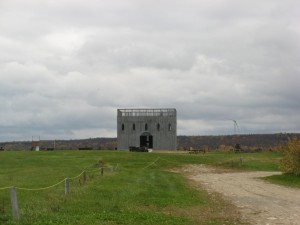 I had done a bit of research before coming and read how he hand prunes his 13,000 apple trees himself. And by hand. (Did I say that already?) By that alone, I get a sense that he is a man of dedicated passion. I had arrived early in the day, before groups and families show up for the final days of picking fruit. This allows me some time to talk with Emmanuel and to get a tour of the premises.
I had done a bit of research before coming and read how he hand prunes his 13,000 apple trees himself. And by hand. (Did I say that already?) By that alone, I get a sense that he is a man of dedicated passion. I had arrived early in the day, before groups and families show up for the final days of picking fruit. This allows me some time to talk with Emmanuel and to get a tour of the premises.
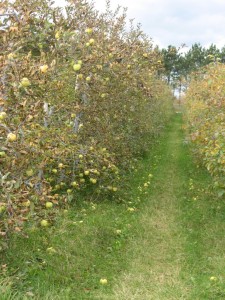 Emmanuel had started his orchard the conventional way, with chemicals and pesticides. But all those chemicals were making him ill. The pesticide against apple scab is a neurotoxin for bees. No one was allowed into the orchard for two to three days afterward. He was a health-conscious person to begin with, and was the reason he had moved to the country. So why would he move out here for a healthier lifestyle, if only to be poisoning himself and the environment with chemicals? So he started researching ways to go organic. By the time he was ready to give it a try, he had thought it all out. “Organic: it’s all about prevention.” If a plum Curculio or a coddling moth gets into your orchard, you’ll lose your crop in two weeks. You need to make sure they don’t get in there.
Emmanuel had started his orchard the conventional way, with chemicals and pesticides. But all those chemicals were making him ill. The pesticide against apple scab is a neurotoxin for bees. No one was allowed into the orchard for two to three days afterward. He was a health-conscious person to begin with, and was the reason he had moved to the country. So why would he move out here for a healthier lifestyle, if only to be poisoning himself and the environment with chemicals? So he started researching ways to go organic. By the time he was ready to give it a try, he had thought it all out. “Organic: it’s all about prevention.” If a plum Curculio or a coddling moth gets into your orchard, you’ll lose your crop in two weeks. You need to make sure they don’t get in there.
“They told me it couldn’t be done…so I did it”.
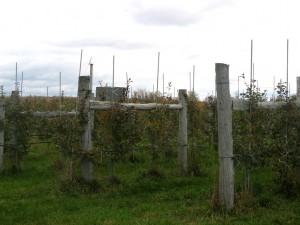 Emmanuel is a man who likes a challenge. Perhaps even, thrives on it. He even chose apples because it was one of the more difficult to grow. (There is also a long history of apples in Greek myths and culture which appealed to him[i].) People told him that running an apple orchard without pesticides in Quebec is impossible, that there are fungi and insects that can only be treated with chemicals. They told him that a high density orchard will not work. They told him that a wine without sulphites added will not work, nor one with indigenous yeast. They were wrong on all counts.
Emmanuel is a man who likes a challenge. Perhaps even, thrives on it. He even chose apples because it was one of the more difficult to grow. (There is also a long history of apples in Greek myths and culture which appealed to him[i].) People told him that running an apple orchard without pesticides in Quebec is impossible, that there are fungi and insects that can only be treated with chemicals. They told him that a high density orchard will not work. They told him that a wine without sulphites added will not work, nor one with indigenous yeast. They were wrong on all counts.
“I’m Greek, it’s natural to think of other ways to do things.”
Emmanuel’s key to success is his understanding of nature. He thought about how to get the bug out instead of “how do I kill it?” He researched what environment the insect was attracted to then changed it to an inhabitable one. For example, he eliminated access by cutting off areas where the insect would come in. Then he sprayed a combination of kale and clay onto the trees, making them feel dry. The insects don’t like the feeling of the clay, so they leave.
We begin the tour where Emmanuel makes his organic apple icewine and organic pear icewine (both to be on sale soon through the SAQ). Emmanuel, I am to learn, is a person who doesn’t cut corners, who is purist in his approach to agriculture and to wine-making. He takes his cue from biodynamics, a holistic approach to agriculture begun by Rudolf Steiner[ii] in the 1920’s. A true icewine is made from allowing the grapes to freeze on the vine, then crushing the frozen grapes. An apple icewine, or cidre de glace has more leeway: it can be picked fresh, then kept in cold storage until the time of pressing, or for the more intrepid grower, will stay on the tree until it freezes, then pressed immediately. As you may guess, Emmanuel insists on the second approach. It takes 5000psi and up to 48 hours to press the frozen apples!
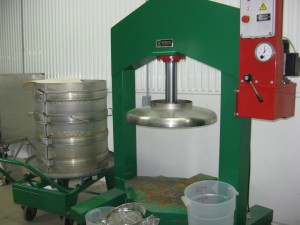 During the winemaking process, many producers will kill off any bacteria and “wild” yeast – yeast that is naturally found in the environment, and then add a pure yeast strain to ferment the fruit. Emmanuel was told that it wouldn’t work with indigenous yeast. But he figures that if they could do it with indigenous yeast on Crete (his birthplace) for thousands of years, then why couldn’t he? So he did.
During the winemaking process, many producers will kill off any bacteria and “wild” yeast – yeast that is naturally found in the environment, and then add a pure yeast strain to ferment the fruit. Emmanuel was told that it wouldn’t work with indigenous yeast. But he figures that if they could do it with indigenous yeast on Crete (his birthplace) for thousands of years, then why couldn’t he? So he did.
He began making the ice wine in 2009. This is the first year it is for sale, having taken three years for those first bottles to be ready: a year to fourteen months to ferment and stabilize, without any added sulphites, another year or so for the yeast to clear out naturally, another six months or so for the final aging process inside the bottle itself.
“An artisanal product has to be done by the artist – he needs to control all the aspects”.
We then go outside for a tour of the orchard. Row after row of apple trees, most of the fruit already picked this late in the season, with many apples on the ground after a period of hail storms and high winds. It looks more like a vineyard than an apple orchard. Standard apple orchards have on average between 35 to 200 trees per acre. At Maniadakis’ orchard, there are 1,000 to 1,200 trees per acre, with 14 varieties of apples, including Vista Bella, Jersey Mac, Sunrise, Paula Red, Macintosh, Gala, Spartan, Cortland, Jona Gold, Golden Smoothee, and Ambrosia.
From the top of the castle, I get a breath-taking view of his 75 acres of natural plants, wildflowers and forested areas. It’s intentional: to create the biodiversity necessary for healthy apple trees.
“If the soil is balanced, there is nothing to do – the fruit will be perfect”
His apples (and pears) now are only available through U-pick during the season, so you’ll have to make a trip out to his orchard to get some. The trip will be worth it. He has the giant castle for the kids to play in, and for adults
to enjoy the view. You can have lunch at one of the picnic tables, or even walk down to the creek and have a picnic on a blanket by the water. In fact, he encourages it. “I have the tables in case someone wants to eat there, but you can go anywhere on the property and have a picnic. I want people to enjoy the space.”
At the end of the tour, I get a taste of his organic apple and pear icewines. They are similar, but there are definite differences. The apple is sweet, but stops before too sweet. The pear ice wine is slightly lighter; it seems to touch higher on the palate. Both are smooth and the color of liquid honey.
While waiting for the next apple season, you can pick up some of the apple or pear icewine (excellent for the holidays!) Order online on the Maniadakis website: http://www.vergerbiologique.com/apple-ice-wine.html or visit the Orchard in Franklin Centre, QC. You can also purchase at the Marché des Saveurs, situated at the Marché Jean-Talon in Montreal. Chin chin!
[i] Check out this article about the Greek history and the apple: http://dianekochilas.com/916/apples-a-greek-history
[ii] He is also the founder of the Waldorf schools. To read more on biodynamics, you can begin here: https://www.biodynamics.com/biodynamics).

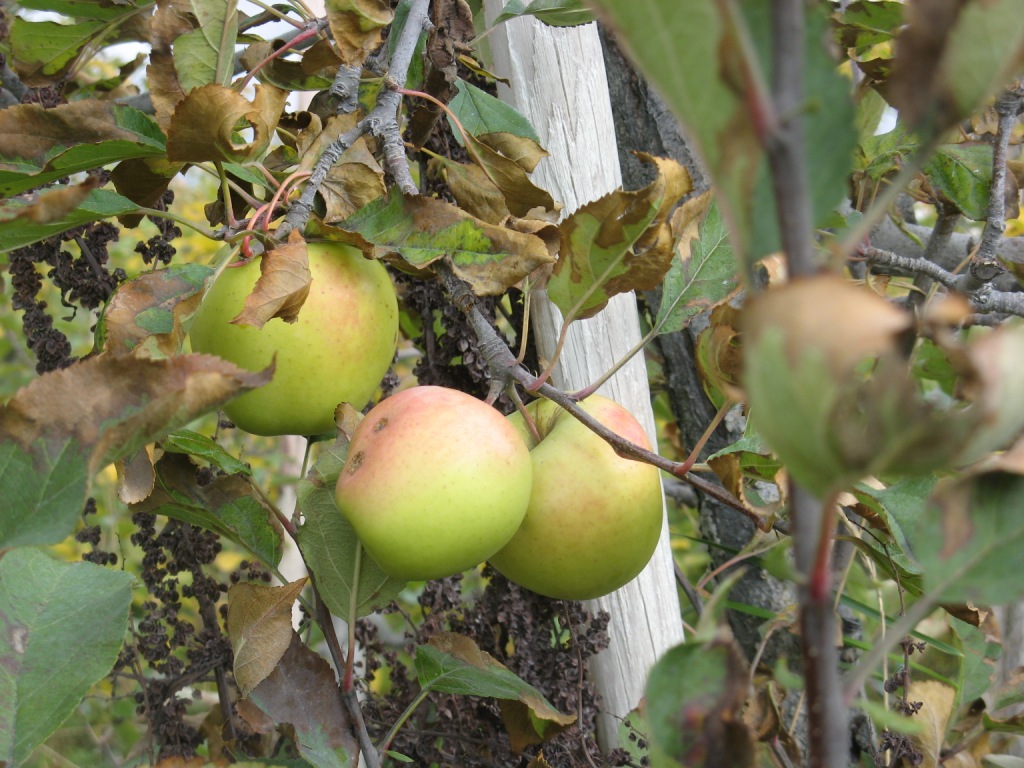
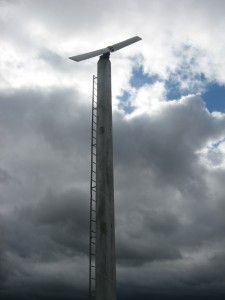
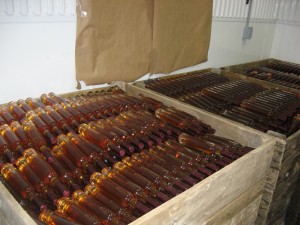
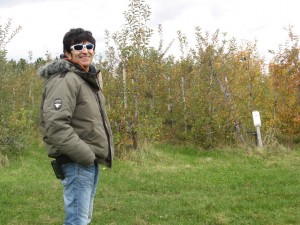
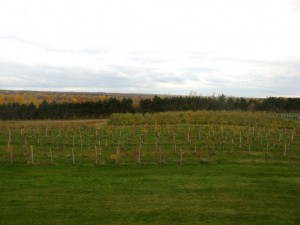
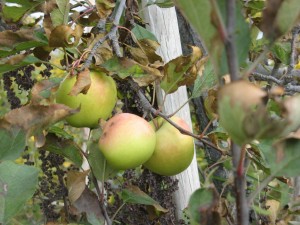
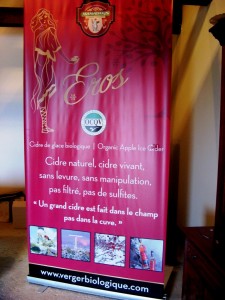




great article Margaux i really enjoyed reading it ,great pics, very accurate ,very well researched and very interesting reading , thank you so much for writing it :))
Pingback: Fromagerie Le Ruban Bleu: more than just cheese » Mon Marché Local
i love the green coments
Thanks! If you like what you see here, sign up for the newsletter for updates, and check back to the website soon. Changes are coming